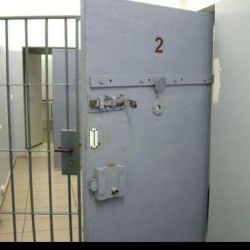From 25 January 2006 until 11 December 2008 the applicant was detained awaiting trial. Throughout that period he was held in a number of different facilities, namely Lublin Remand Centre, Zamość Prison and Hrubieszów and Rzeszów Prisons. In his application to the ECtHR the applicant argued that he had suffered inhuman treatment during his detention. He submitted, for instance, that during his detention in Lublin Remand Centre he had been held in a cell which had originally been designed for 11 persons but actually had been shared by 22 prisoners, which means that there had been 1.1 square meter of cell space per person. The applicant made similar allegations against other facilities.
Mr Grzywaczewski suffers from insulin-dependent diabetes, prostate cancer and mild cardiac disorders. The applicant alleged in his submissions that the medical assistance provided to him during his detention had not been sufficient. Despite his serious health condition he had been treated by the medical staff as if he suffered from common, non-threatening ailments.
Throughout the entire period of his detention Mr Grzywaczewski administered his insulin injections without the assistance of a third person. He did so inside the cell where he lacked privacy and adequate sanitary conditions. Due to the rapid changes of his sugar level he lived with the constant stress and fear of losing consciousness. His medical condition worsened during each move to a new detention facility.
The European Court of Human Rights found that cumulative effects of the overcrowding and inappropriate living conditions provided to the applicant during his detention and the fact that, because of his state of health, the applicant was in a vulnerable position vis-à-vis other prisoners as well as the nature, duration and severity of the ill-treatment to which the applicant was subjected were sufficient to held Poland responsible for inhuman and degrading treatment.





